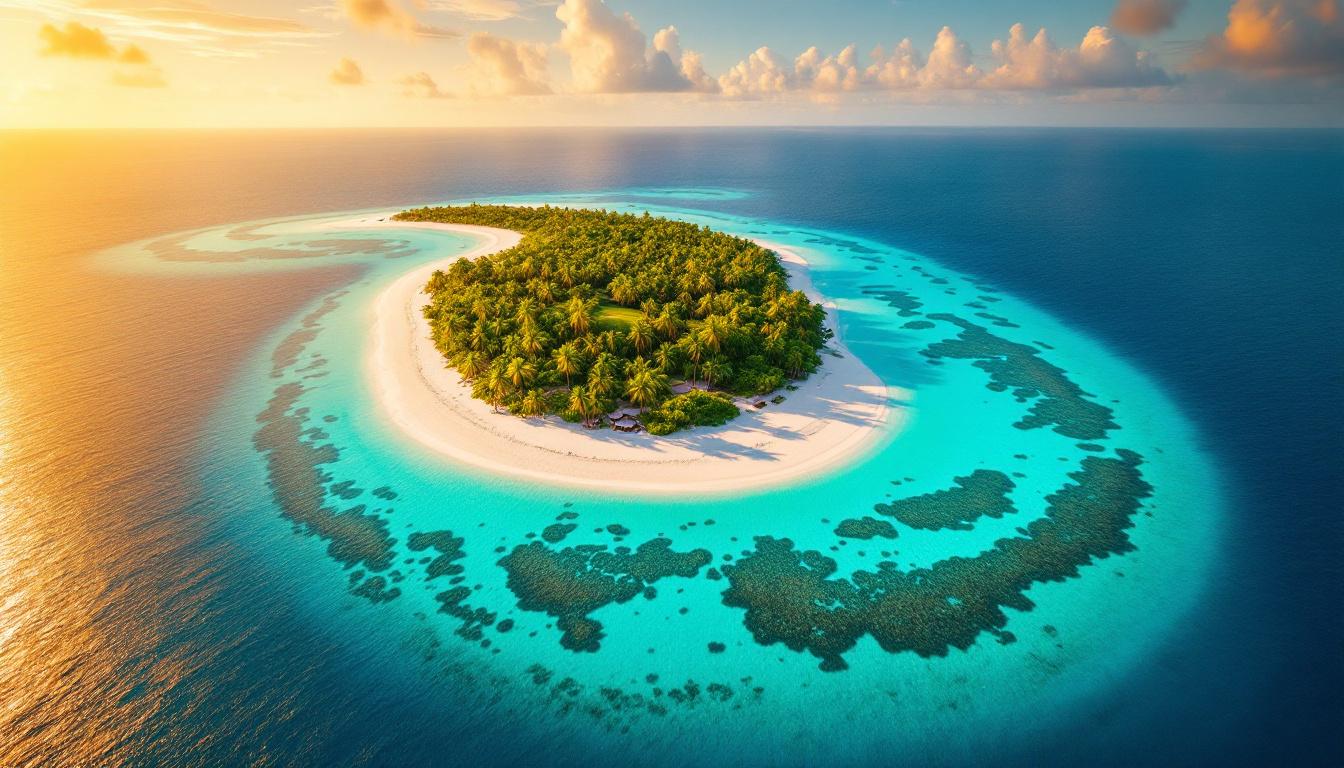Hidden 95 kilometers northeast of Mahé, Denis Island measures just 1.4 square kilometers – smaller than Central Park – yet harbors one of the Indian Ocean’s most ambitious conservation experiments. With only 80 residents calling this speck of coral sand home, the island operates as both luxury retreat and living laboratory.
What makes Denis extraordinary isn’t its size, but what happens beneath its turquoise waters. Local marine biologists have transformed this tiny paradise into the Seychelles’ most successful coral restoration hub, while the island’s Creole residents proudly call it their “garden of Eden.”
The numbers tell an astonishing story: since 2010, coral coverage has increased by 700 percent, fish species have multiplied fivefold, and rare paradise flycatchers now thrive in rehabilitated coconut groves. This tiny island punches far above its weight in conservation impact.
The coral nurseries changing ocean science
Underwater gardens flourishing against all odds
Denis Island’s House Reef Coral Restoration Project operates the most advanced coral gardening program in Seychelles. Marine biologist Sarah Antoine, one of the island’s 80 residents, tends to over 50,000 cultivated coral fragments in underwater nurseries surrounding the island. The technique involves growing coral on specially designed frames, then transplanting mature colonies to degraded reef areas.
Scientific breakthroughs from a tiny laboratory
What started as a small experiment has produced remarkable results measurable from space. Satellite imagery now shows Denis Island’s reef system glowing with renewed life, attracting marine species that had disappeared for decades. The restored areas support three times more fish than untouched sections, proving that active intervention can reverse ocean degradation.
The paradise flycatcher sanctuary nobody talks about
Rare birds returning from near extinction
Among Denis Island’s 80 residents are some unexpected neighbors: a thriving population of Seychelles paradise flycatchers. These elegant black birds with streaming tail feathers were nearly extinct until 2009, when conservationists relocated breeding pairs from overcrowded La Digue to Denis’s predator-free environment.
Island-wide ecosystem restoration
The flycatcher program required transforming the entire island ecosystem. Residents removed invasive species, replanted native vegetation, and established strict biosecurity protocols. Today, Denis supports the largest paradise flycatcher population outside La Digue, with birds nesting in rehabilitated coconut groves that stretch across the island’s interior.
Living with conservation as the island’s heartbeat
A community dedicated to restoration
Denis Island’s 80 residents aren’t just living in paradise – they’re actively creating it. From marine biologists monitoring coral growth to hospitality staff educated in conservation practices, every resident contributes to the island’s ecological mission. Organic farming initiatives provide fresh produce while maintaining soil health, and solar power systems minimize the island’s carbon footprint.
Traditional Creole wisdom meets modern science
The island’s conservation success blends cutting-edge marine science with traditional Seychelles knowledge. Elder residents share ancestral fishing practices that inform modern reef management, while younger Creole staff learn advanced coral propagation techniques. This fusion creates a unique conservation culture that honors both scientific innovation and cultural heritage.
Accessing this tiny conservation paradise
The exclusive journey to reach Denis
Reaching Denis Island requires a 35-minute charter flight from Mahé in a small propeller aircraft – the only way to access this remote sanctuary. The island’s single grass airstrip handles just a few flights weekly, naturally limiting visitor numbers and preserving the delicate balance between tourism and conservation.
Staying where conservation comes first
Denis Private Island accommodates just 48 guests maximum in 24 beachfront cottages, ensuring minimal environmental impact. Every aspect of the resort supports conservation goals, from locally sourced meals featuring ingredients grown on-island to guided reef tours that fund ongoing restoration work.
Planning your visit to support conservation
When to visit for optimal reef experiences
Denis Island’s coral nurseries are most active during Seychelles’ dry season from May through September, when calm conditions allow for underwater tours of restoration sites. Northern hemisphere visitors escaping winter find perfect conditions for snorkeling among the thriving coral gardens.
How your visit directly funds conservation
Every guest fee includes contributions to ongoing coral restoration and bird conservation programs. Visitors can participate in coral planting sessions, bird monitoring walks, and educational presentations by resident marine biologists.
Denis Island proves that even the tiniest places can create outsized environmental impact. This 1.4-square-kilometer sanctuary demonstrates how thoughtful tourism can fund meaningful conservation, creating a model that other small islands worldwide are beginning to follow.
